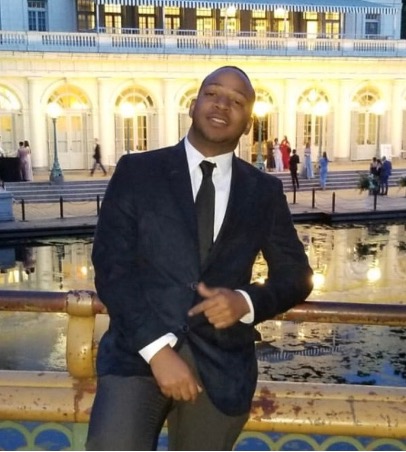 When I was 13, one night, a group of kids robbed me and stabbed me, not just because
I was walking in a dangerous area of my neighborhood — the whole place was unsafe
— but a new gang had claimed the area without my knowledge. I was at the hospital
for more than a month. The knife had punctured my intestines in different sections,
and the surgeons had to remove several inches of it. The neighborhood was changing
faster than I could note, but so was I; my mother had already died, and I needed to
become independent, move out of the area, work, and go to school. Being in the wrong
place that night took a different meaning, which haunts me until this day. It made
me first acknowledge the social forces that I needed to grapple with if I wanted to
survive my teen years, and secondly interrogate the psychological consequences of
my neighborhood on my family, neighbors, friends, and me.
When I was 13, one night, a group of kids robbed me and stabbed me, not just because
I was walking in a dangerous area of my neighborhood — the whole place was unsafe
— but a new gang had claimed the area without my knowledge. I was at the hospital
for more than a month. The knife had punctured my intestines in different sections,
and the surgeons had to remove several inches of it. The neighborhood was changing
faster than I could note, but so was I; my mother had already died, and I needed to
become independent, move out of the area, work, and go to school. Being in the wrong
place that night took a different meaning, which haunts me until this day. It made
me first acknowledge the social forces that I needed to grapple with if I wanted to
survive my teen years, and secondly interrogate the psychological consequences of
my neighborhood on my family, neighbors, friends, and me.
Comprehending gangs came with planning my moves around the neighborhood and identifying hot and safe areas by talking to different people, including gang members. I grasped that many of them were kids like me, with the same dreams, fears, and frustrations. I also witnessed urban violence's mental health issues on neighbors of all ages. That is why, when I turned 14, I started participating in different social programs where I put together workshops on topics such as human rights, sports, and Afro-diasporic culture, especially music and theater. As a result, I became a social educator in my late teen years and worked with vulnerable communities in cities across Colombia and Ecuador. Working with different communities expanded my views on how people needed to adjust their daily routine due to dynamics of violence that extended beyond my own neighborhood.
Now that I moved permanently to the U.S., I still coordinate social interventions in my neighborhood. For example, every December since 2016, I co-organize "Por una sonrisa de corazón" (‘For a smile from the heart’), an event that provides a safe space for more than 300 kids where they meet and play. At this event, kids who have been displaced from rural areas interact with each other through traditional games such as Hopscotch, Lazo, Ponchado, and Jeymi. Social interventions like this, while helping reclaim the public space regularly inaccessible due to gang violence, enhance peace and the mental wellbeing of youth.
My experience at MVCC has been one of the best as it has allowed me to strengthen my writing, reading, speaking, and listening skills. I remember that my first academic contact at MVCC was when I enrolled in the ESL classes. At that time, I was very afraid and did not think I could finish my studies. Still, thanks to Dr. Marshall and Professor Tia Lock's support and assistance during my educational process, I succeeded. They helped to improve my confidence, and with this, I started my studies in the Psychology program in which I am studying my last semester. These five semesters of my career have given me greater confidence when it comes to expressing myself and thus getting better jobs, which has been a great help for my growth on a personal and professional level. English is now my second language. This learning process has allowed me to maintain an academic average above 3.60. Also, I was currently accepted at Baruch, Hunter, and City College. In addition, I have been given better job opportunities. Now I am working as an Interpreter with the Utica refugee center at the Oriskany School.
I am currently working on my Honor Research Project At MVCC. Dr. Dobbins and others have helped me understand how vital Psychology and Sociology are when campaigning to bring about social change. In the context of gang violence, community progress requires behavioral understanding. In other words, transformative change is only possible by a cultural and organizational change enabled by the commitment and motivation brought by devoted counseling. My AA Honors theses project deals with what I call "Invisible Barriers," that is, invisible lines that cannot be crossed by most people because they can put their individual lives or integrity at risk. Here I seek to understand the conditions and the psychological consequences (such as work-related behaviors) people who live in poor communities go through due to gang violence. This is the project I would be delighted to continue building, expanding, and refining at CUNY.
